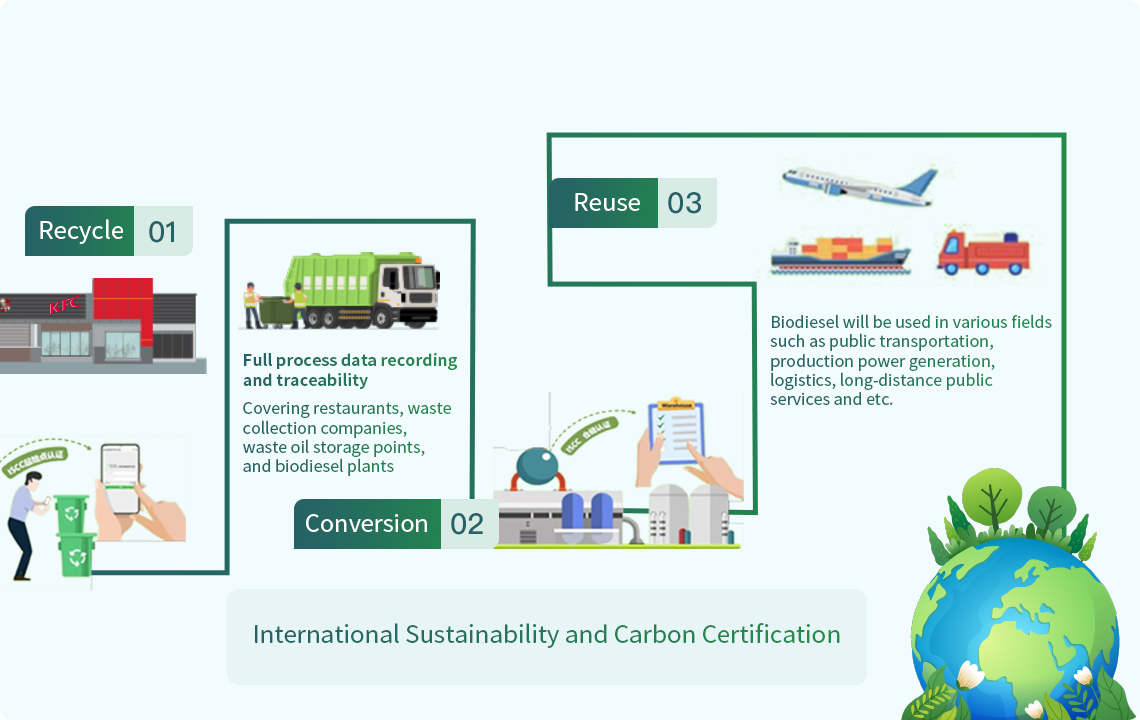
The food service industry generates a significant amount of used cooking oil during daily operations, which could lead to environmental pollution if not properly managed. We actively drive initiatives to better utilize UCO by converting it into valuable resources. Since 2019, we have expanded the scope of pilot projects for converting UCO into biodiesel, while also exploring the application in sustainable aviation fuel (SAF) and maritime fuel sectors.
We actively contribute to the establishment of national biodiesel industry chain. During the reporting period, we participated in the B10 vehicle biodiesel pilot project in Beijing led by the China National Energy Administration (NEA), using UCO collected from KFC and Pizza Hut restaurants. Furthermore, we plan to join the China NEA's B24 marine biodiesel pilot in Shanghai in 2025.
In 2024, we continued to recycle UCO from our stores, with nearly 50% of it being converted into biodiesel. The remaining UCO is also transformed into lubricants, industrial oils, and other products. Since the launch of our Biodiesel Pilot Project in Sichuan Province, the initiative has successfully converted approximately 5,700 tons of UCO into biodiesel by the end of 2024. We are now progressively expanding this model to other provinces to promote wider adoption.


To efficiently process coffee grounds, we are dedicated to establishing an efficient recycling and treatment system that spans from front-end collection in our restaurants to back-end resource Coffee Grounds conversion. We have launched coffee grounds recycling initiatives across KFC restaurants nationwide and constructed coffee grounds disposal centers to transform collected coffee grounds into valuable resources.
Building upon our established recycling system, we are actively exploring innovative applications for coffee grounds across various fields to commercialize them into value-added products. During the reporting period, we successfully developed aprons containing coffee grounds and rolled them out to all of KCOFFEE Cafes. Additionally, we incorporated coffee grounds as a raw material in the production of disposable biodegradable plasitc (PLA) straws and cutlery. We are also conducting pilot tests to explore the feasibility of using coffee grounds in the manufacture of plastic logistics pallets and containers. Moving forward, we will continue to expand the use of coffee grounds as an ecofriendly material in sectors such as food service, hospitality, aviation, retail, and convenience stores.



